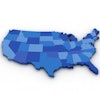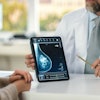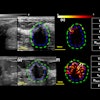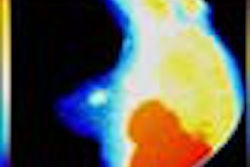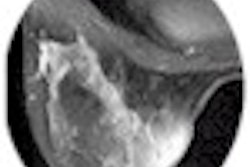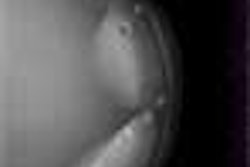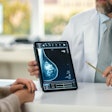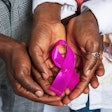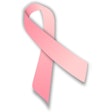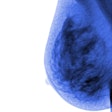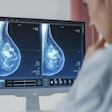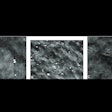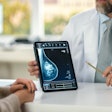VIENNA - Mammography computer-aided detection developer R2 Technology is using this week’s European Congress of Radiology to jump into the European market. The Los Altos, CA, firm is setting up a European sales and distribution effort for its ImageChecker CAD workstation, which scans digitized mammograms to highlight suspicious areas that might require further review by radiologists.
Up to now, R2 has focused its marketing efforts for ImageChecker on the U.S., where about 200 systems have been installed. The company has sold only 10 systems in Europe, mostly at research sites, according to Kenneth Miller, R2’s chief marketing officer.
That’s due to change, however. The company has beefed up its booth presence at ECR compared to last year, and will begin European sales shortly, Miller said. R2 has hired a veteran radiology executive as general manager of its European organization, and is signing agreements with key distributors on the continent.
In Europe, R2 will be selling both versions of its workstation: a film-based system and a filmless version. In the U.S., R2 has FDA approval to sell only the version that examines mammograms derived from digitized film. Thanks to Europe’s more relaxed regulatory environment, however, R2 is able to market both the film-based ImageChecker and the filmless version, which works with full-field digital mammography (FFDM) systems.
R2’s marketing agreement with GE Medical Systems will help the company penetrate the European market. The Waukesha, WI, vendor is the only firm actively selling an FFDM system -- Senographe 2000D -- and GE executives say they have finished their technology integration efforts and are ready to begin European sales of a filmless Senographe 2000D/ImageChecker package.
Things will probably move more slowly in the U.S. for the all-digital system, where R2 must receive additional FDA approval before it can begin selling the filmless ImageChecker as an adjunct to FFDM systems, according to Miller.
One of the issues R2 will have to deal with in Europe is reimbursement for ImageChecker scans. Because reimbursement has to be secured on a country-by-country basis, it will be a more laborious process than in the U.S., where Medicare will begin paying $15 per ImageChecker scan starting on April 1.
But R2 is confident that European radiologists will begin using its technology even without additional reimbursement. The company’s experience in the U.S. has found that the system increases breast cancer detection rates by 20.5% -- or an extra sixth cancer found for every five detected by the radiologist.
In the future, R2 plans to pursue applications for ImageChecker outside mammography. Lung cancer screening is one potential application, and R2 has a technology development agreement with Eastman Kodak of Rochester, NY, for the use of ImageChecker with computed radiography and digital radiography systems.
In the ECR’s Golden Mile promenade, R2 is displaying results for the application of its technology to CT lung screening. ImageChecker could particularly help radiologists deal with the hundreds of images generated by multislice CT scanners, Miller said.
By Brian CaseyAuntMinnie.com staff writer
March 4, 2001
Copyright © 2001 AuntMinnie.com
